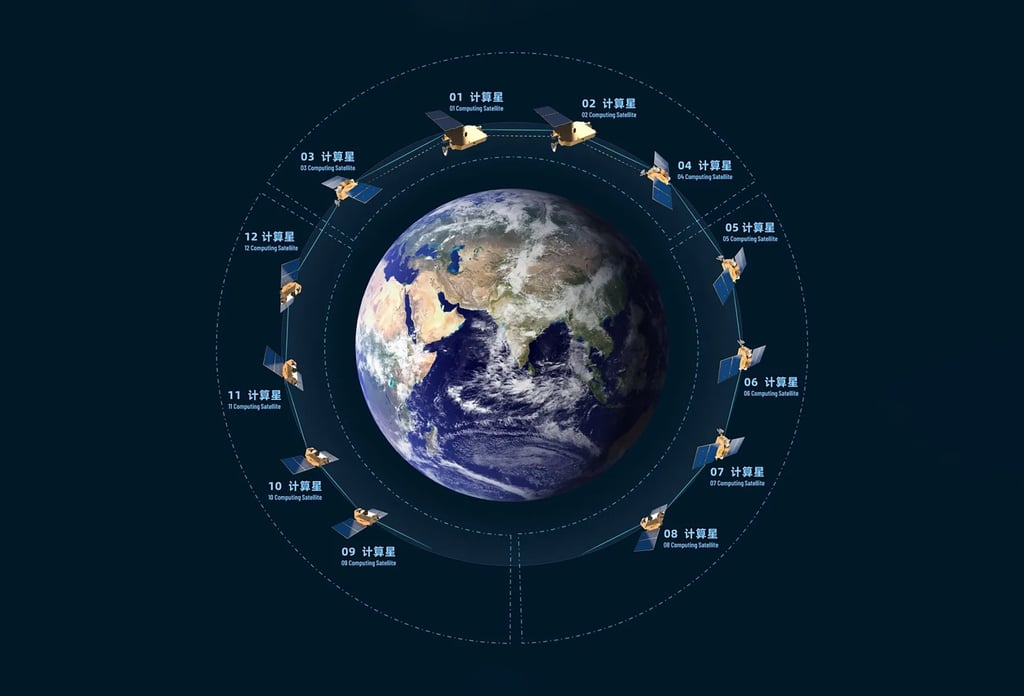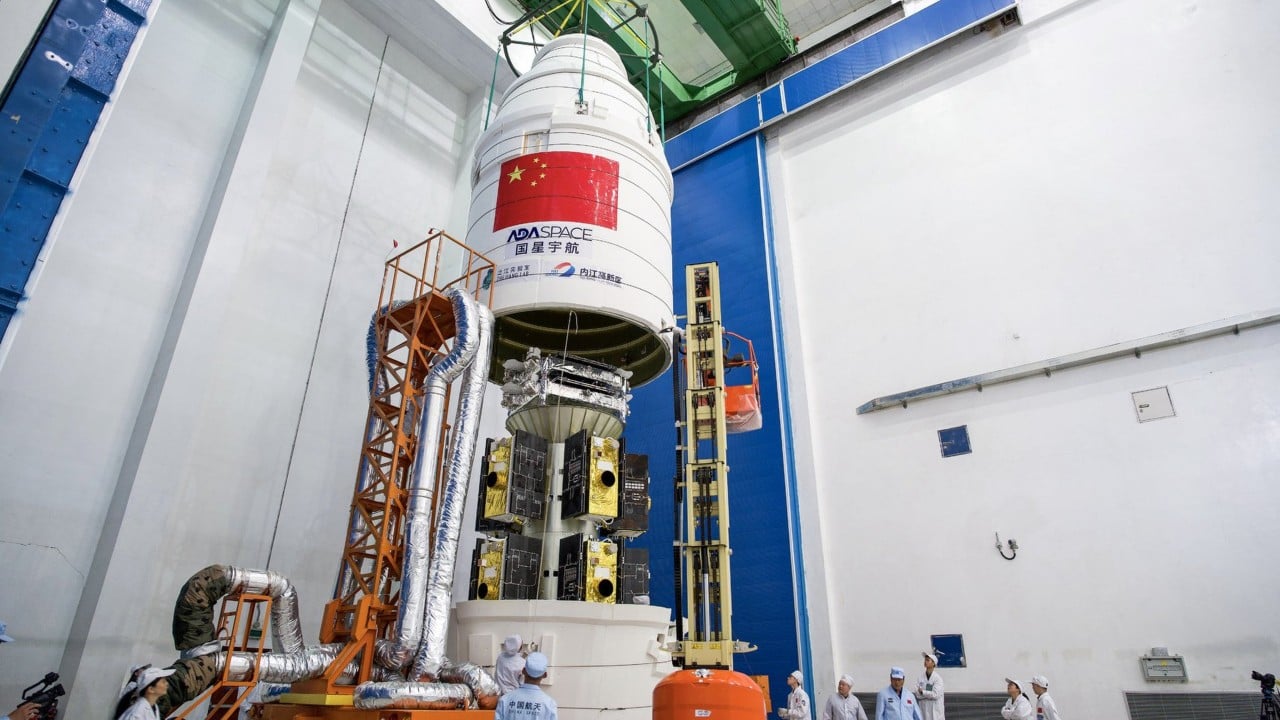China’s launch last week of a cluster of 12 satellites that will form the foundation of the world’s first orbital computing constellation signalled the country’s ambition to dominate space-based computational power.
Advertisement
The constellation, a collaboration between aerospace innovators like Guoxing Aerospace and AI specialists at Zhejiang Lab is designed to process data in orbit rather than rely on land infrastructure.
The system aims to take advantage of the unlimited solar energy and lower cooling demands of space, as well as today’s falling launch costs.
There is also the promise of speed and efficiency.
For instance, disaster response teams could use satellites to analyse real-time imagery mid-orbit, bypassing data bottlenecks on Earth and saving time. Or a network of solar-powered orbital “data factories” could cut reliance on terrestrial grids and reduce the need for cooling.

“We believe that the fusion of AI represents the future of the space industry. In the long term, space-based computing could become a foundational infrastructure accessible to all,” said Chen Junrui, spokesman for STAR.VISION, a private aerospace company based in Hangzhou.

